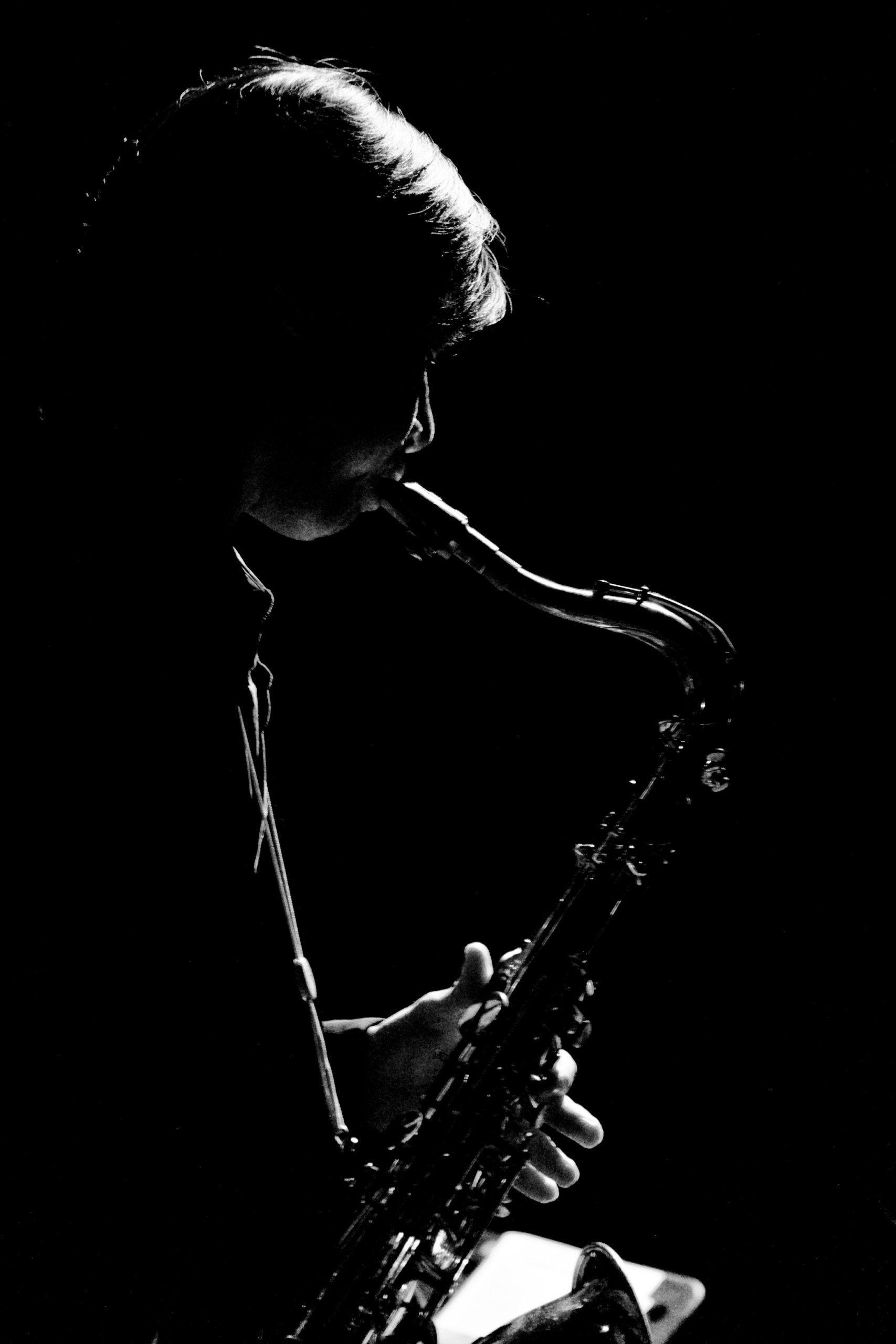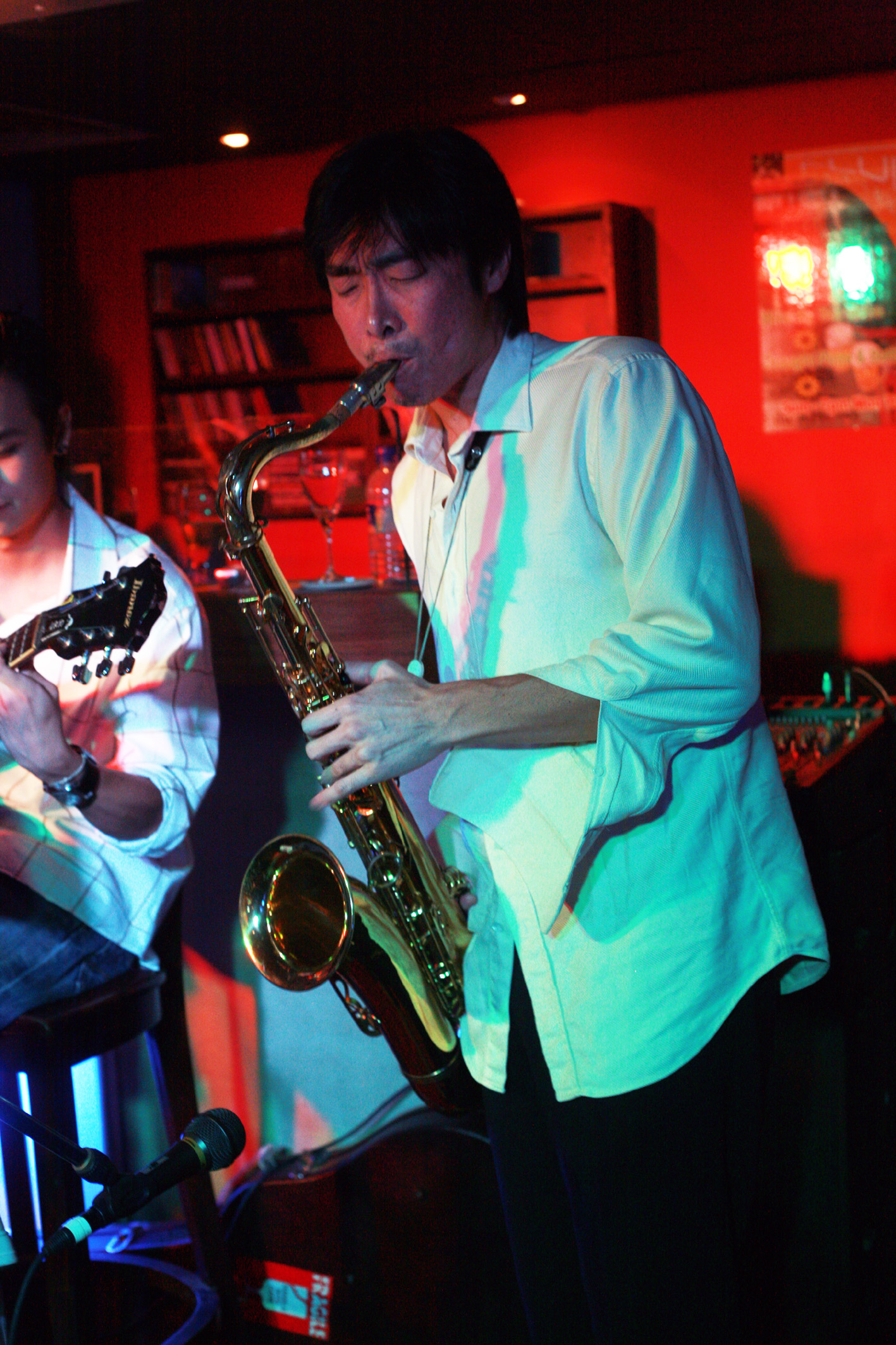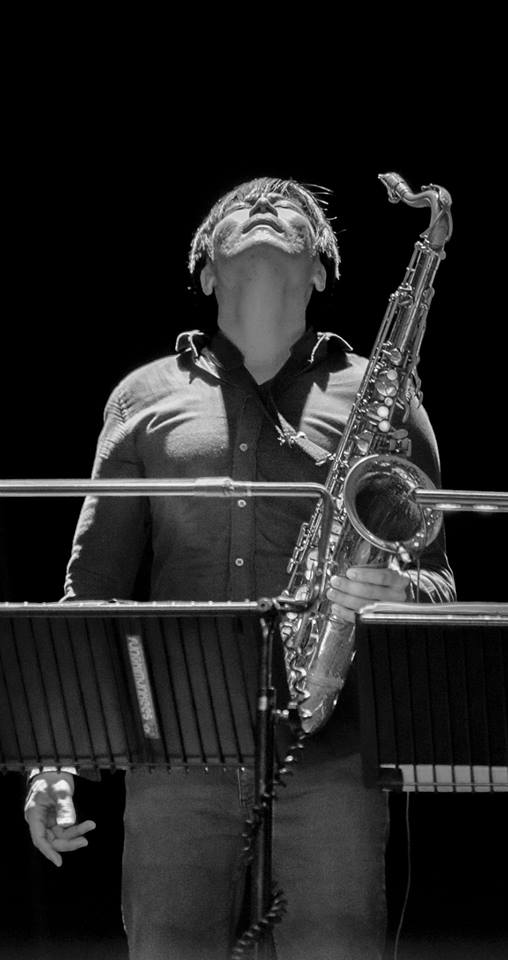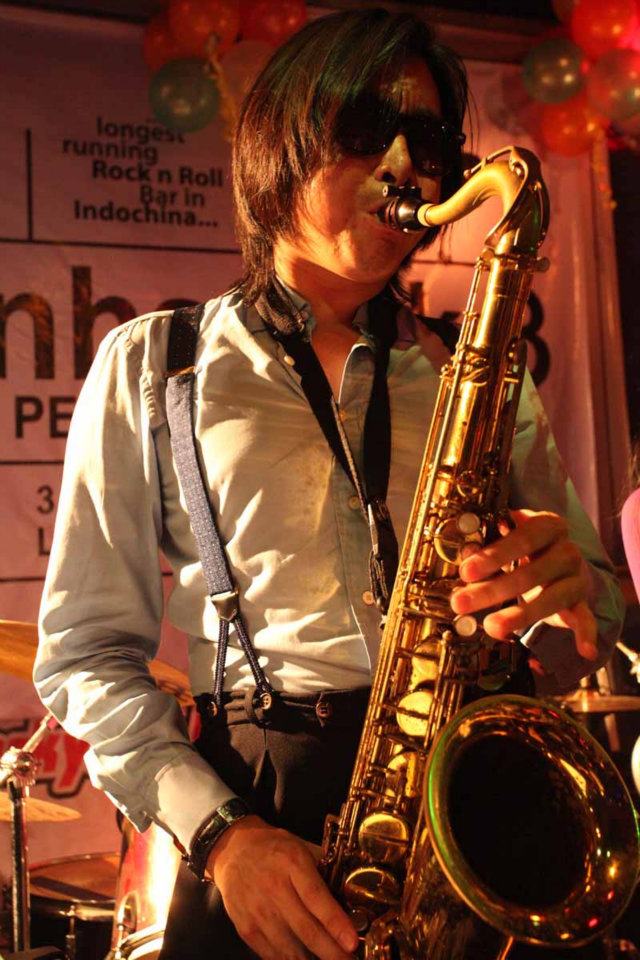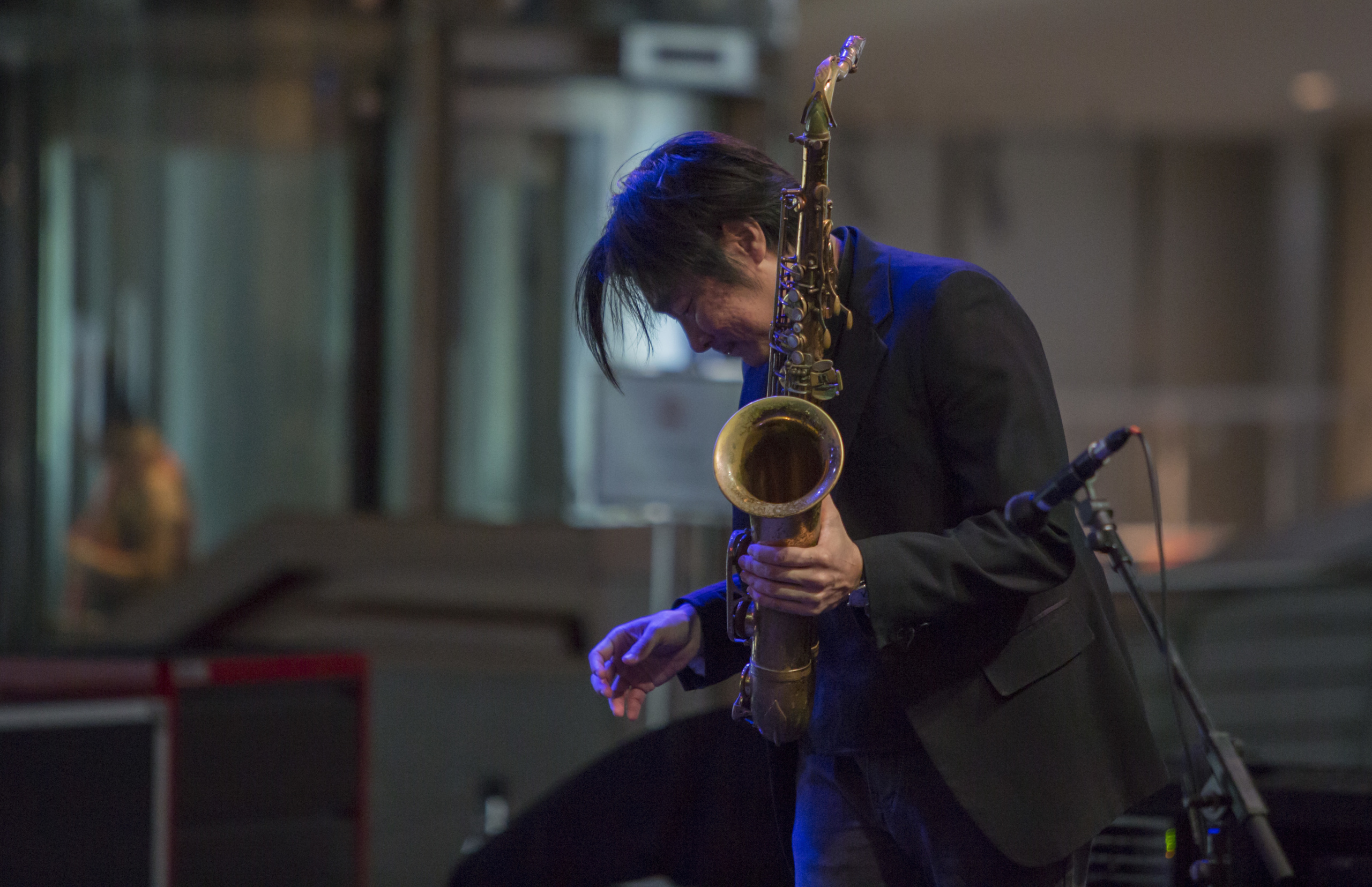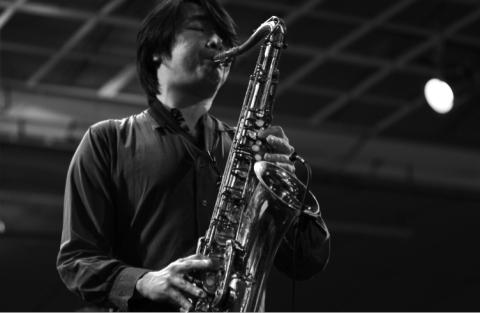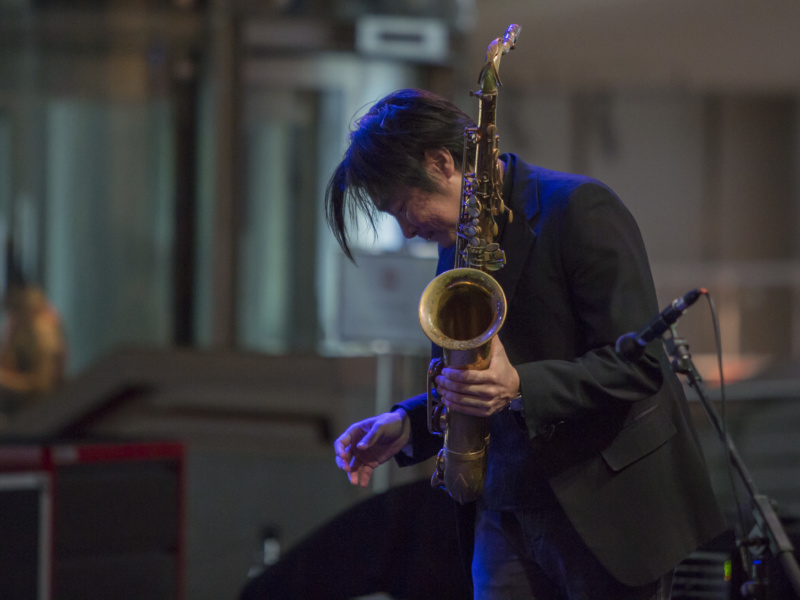- Name
- Edmund Wuu
- Expertise/Specialty
- Edmund Wuu was encouraged to learn the piano by his mother when he was nine years of age. He played for a few years but was never very enthusiastic about it. At 13, he picked up the saxophone - this time it felt different, because it was his choice – and he played it all the way through school. But life and career took over, and music took a back seat. Then, at age 30, after years working in management consulting, he picked up his saxophone again. It re-ignited his passion and, today, he's been playing professionally for years.
- How did you get started in playing saxophone and what made you continue?
I first played the saxophone when I was 13 years old after a few years of taking piano lessons. It was my choice to learn it and I was relatively good at it, but if you had asked me if I would ever do it professionally, I would never have thought so! I got a degree in Finance in New York and went into management consulting as a career and did all the ‘right’ things until I hit my ‘midlife’ crisis at 29 years old. I started asking myself: ‘Did I really want to spend the rest of my life creating slide decks and running spreadsheets?’
So I quit my job and went backpacking across Africa, traveling from Cairo to Cape Town overland, and decided there and then to follow a different path… to take Robert Frost’s ‘road less travelled’, so to speak. These days, I consult for a few months of the year so that I can play music the rest of the time. It's a good balance, and I am very grateful for having this luxury to choose how I spend my time.
At 30, I picked up the saxophone again. As an adult, I was much more determined and focussed. I practised the saxophone for 18 months before I secured my first paid gig, but the journey to improve and grow as a musician is an ongoing and endless one.
I still have the piano my dad bought for me when I was 13 – ironically when I stopped taking piano lessons! It’s a 90-year old piano and has great sentimental value for me. The relationship between the piano and saxophone has reversed from my childhood. These days, I consider the saxophone 'my work' whereas piano is more for fun; I'll try to learn a couple of Chopin pieces on the piano and then go practise my saxophone.
- What and with whom do you play?
Most saxophonists are session musicians or freelancers – we get called to play with different bands for different events. Before the pandemic, I was playing with seven or eight different bands, in all sorts of different formats; I’ve done everything from solo saxophone and simple hotel lobby piano duos, to saxophone quartets, funk and soul bands with 3- or 5-piece horn sections, and full 18-piece jazz big bands. Doing so really teaches you to be versatile and adaptable.
But my first love is jazz, and I always come back to it, even after I’ve been called to play many other genres of music. Jazz itself is such a deep music – there is so much to learn and work on that I can honestly say that I will never master it in my lifetime. You need to develop the vocabulary and study the repertoire. Often with an ad-hoc jazz band, musicians can just turn up and jam without any prior rehearsal. Learning this common language allows jazz musicians from different places and countries to play together.
- Tell me about the jazz scene in Asia and Singapore?
I used to hear these colourful stories from older musicians like Uncle Louis Soliano and Steve Rufus about the old days, when the live music scene was flush with more opportunities. My own involvement in the jazz scene, first as a listener and later as a musician, only started in the 1990s.
That was a rich period for jazz: live music six nights a week, including a weekly jam - how long ago that feels now! American musicians like Eldee Young, O’Donel Levy, and Victor Gaskin came to Singapore to play, some of whom like Rick Smith and Christy Smith stayed on. Younger musicians learnt a lot from these foreign talents, and also from the giants of the local music scene like Jeremy Monteiro and Iskandar Ismail.
Many of the venues that used to have live jazz are no longer around: Somerset’s at the Westin Hotel which had great international musicians; Saxophone Bar at Cuppage Terrace where I got my first job as a waiter; Jazz@Southbridge at Boat Quay where I first jammed; Harry’s bar at Boat Quay was a mainstay for many musicians and is still around but no longer has live music; Blu Jaz near Haji Lane briefly lost its performance license but has gotten it back, just before covid-19 forced the shutdown of all live venues in Singapore.
The live music scene has gone into hibernation since covid-19. The lockdowns have severely impacted musicians’ livelihoods, and many have had to consider alternative sources of income, both within music and without. Some are livestreaming on the internet, or using new software such as Jacktrip to play with musicians in different locations or even countries. But the economics for livestreaming are not great, and probably not sustainable unless one has sponsorship.
- What is playing saxophone like for you?
I mentioned earlier that one of the reasons why I love jazz is that, like classical, it is such a deep music. So playing music for me is an endless search plumbing these depths, and sometimes, very occasionally, if I dive deep enough I lose myself in it and simply become a conduit or vessel for this music.
During these moments, the ego disappears and I become one with the instrument; there is almost no barrier between me and the music – it just flows out. Ronnie Scott describes it like the saxophone was playing itself. These moments are almost spiritual, and practising to reach these states is like meditation. We delve into this rich inner world, and we can zone out all the external noise and just focus on creating and becoming one with the music.
To return to the diving analogy, when you go scuba diving, there is this silent but incredibly rich other world that you visit, where everything is quiet and full of wonder. Music is similar, and you can lose yourself in this other world.
What I also love about playing the saxophone is the transient or fleeting nature of live music, very much like life! You play the line or phrase and then it’s gone forever, disappearing into the air like smoke from a cigarette, and you might never play it the same way again. It is a celebration of the moment, of the here and now.
Recordings might document or capture the music, but the essence of what we play is really during the actual performance. That’s one reason why some of the greatest jazz recordings - Charlie Parker and Dizzy Gillespie at Massey Hall, Duke Ellington at Newport, Miles Davis at the Philharmonic Hall, just to name a few - have been live performances.
So you have to be completely present and in the moment to play this music. It is a bit like practicing mindfulness. Jazz is improvised music and made up of these moments strung together, each unique and never to occur again. A little like life itself.- What qualities has it encouraged or grown in you?
Once when I was playing the saxophone by the river Seine in Paris, someone said to me ‘pour être musicien, il faut être libre’ – In order to be a musician, you have to be free.
‘Jazz means freedom and openness.’ The great pianist Herbie Hancock talks about how you have to ‘keep eyes, ears, and heart open’ to play this music.Playing music has taught me to suspend judgement and to be open to all things, to recognise that there is no one way of doing things.
Suspending judgement, you start to appreciate all music and recognise that all musical forms and styles are valid, so long as they come from a place that is honest and sincere. If I don’t like some types of music, it might just be that I don’t understand the music or what it is trying to communicate. So openness and understanding has to come first.
I have a quote in my practice journal from Charlie Haden the bass player: “Music teaches you humility… If you want to become a good musician, strive to become a good person first.”
- What have been some of the challenges or struggles?
To play music professionally can be hard anywhere, but particularly in countries like Singapore, where parents might want to steer their children towards more traditional career paths (‘Grow up to be a doctor/lawyer/CEO!’), even while insisting they take music lessons and (many) other extracurricular activities!
Navigating this landscape of crossed messages can be difficult and confusing, especially when you are young. Finding out who you are and what you want to do with your life is an on-going process and journey. How do you find your own voice in a huge world full of noise? I think it was Miles Davis who said it takes a long time to sound like yourself.
One good thing is that the musical education infrastructure is better these days – in Singapore, we have the Yong Siew Toh Conservatory at NUS, School of the Arts, Nanyang Academy of Fine Arts, and LaSalle - but you have to wonder if we are creating a larger supply of musicians without a corresponding increase in demand for the services these musicians offer. So many trained musicians end up teaching music… and creating even more musicians.
Achieving a balance between the artistic self and the commercial one is a constant battle. For many musicians, it's an ongoing struggle to balance artistic endeavours with financial realities - you have to pay the bills. The commercial aspect in Singapore means most musicians might also have to do a side gig like teaching or even have a day job. It also affects what you play when you perform and you often have to over-play popular songs or Top 40 hits, rather than what you want to play.
But despite all these challenges, which are not unique to music but to all artistic endeavour, it is a real privilege to be able to play music, and I am always grateful of having the opportunity to do so.
- What is the impact on your health?
It can sometimes be a challenge, both mentally and physically, playing music for a living. So much of who we are is invested in the making of the music that other things can fall off the radar, but that is probably the true for everyone, not just musicians. Sometimes it is difficult to separate our work from our identity.
Music venues such as clubs and bars have no lack of temptations and it can be easy to slip down a slippery slope of late nights, booze, and a lack of regard for one’s health.
It is always easy to under-prioritise exercise, especially as we get older, and I am certainly guilty of that! Physical exercise is so important - it keeps you healthy and also balanced. I’ve completed two marathons, but I don’t think I am fit enough to run another one these days!
Playing music is also good for mental health – it provides a healthy outlet for self-expression. I am so much happier than I would have been if I'd stayed in consulting full time. Mind you, some of the best art comes from people suffering and going through difficult times. Composers such as Rachmaninov, Schumann, and Beethoven all suffered from depression - their music springs from a deep well of pain and darkness. I think it is the same for some of the jazz geniuses like Charlie Parker, who died at 35, but fundamentally changed the music of jazz.
The social aspect is also a big benefit of playing music – it lets us express ourselves and allows us to connect with people. The covid-19 pandemic has disrupted this feeling of connection, and so many musicians are missing this interaction with other musicians and the audience. Music brings people together - it's like having a common language, and as a way to connect with people it is better than more solitary artistic pursuits like painting or writing.
- How can people get started if they want to?
I would recommend anyone to learn to play a musical instrument, regardless of age - you could be a kid, working adult, or retiree - there is no age limit. The objective is not to be good at it; the objective is just to enjoy it. As Kurt Vonnegut says: “To practice any art, no matter how well or badly, is a way to make your soul grow. So do it.”
Be like a kid - try anything and everything. Rent an instrument first if you are not sure - can I play piano, violin, drums, or even the saxophone? If you have children, let them decide. Expose them to different music. Often, we want to play the music we’ve been listening to.
Learn to play with other people – join a band once you are good enough or get involved in a community.
Eventually down the road, it is good to set a goal to play publicly, it does not need to professional or for money. The experience of playing in front of a live audience is very rewarding and also part of the learning process.
For adults who might be thinking of picking up an instrument, there is a lovely book about a 51-year old man who wanted to play Schumann’s Traumerie, a deceptively simple piece that requires emotional maturity, on the piano, so he sets himself a goal to learn the piano and play it for his wife in a year - Piano Lessons: Music, Love, and True Adventures by Noah Adams. Or there is also The Guardian editor Alan Rusbridger’s book - https://crosseyedpianist.com/2013/01/18/book-review-play-it-again-alan-rusbridger/ - about learning the Chopin G minor Ballade as an adult. Both stories are great examples that it’s never too late to learn an instrument and play music.
"When was the last time you did something for the first time?" None of us wants to look like a fool in front of other people, and sometimes that fear holds us back from trying something new or difficult. Yet I think that it is important to withhold judgement, especially on ourselves, and take a leap of faith.
Letting go is about becoming comfortable with being uncomfortable. As Picasso said: “If you know exactly what you’re going to do, what’s the good in doing it?”
